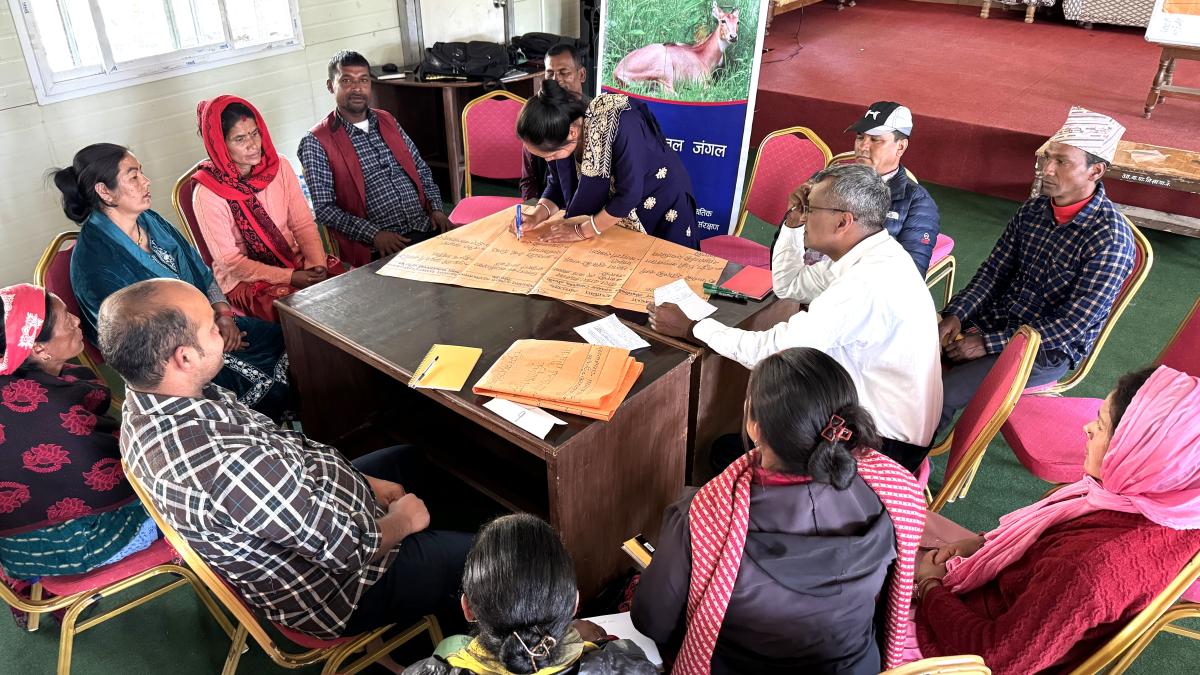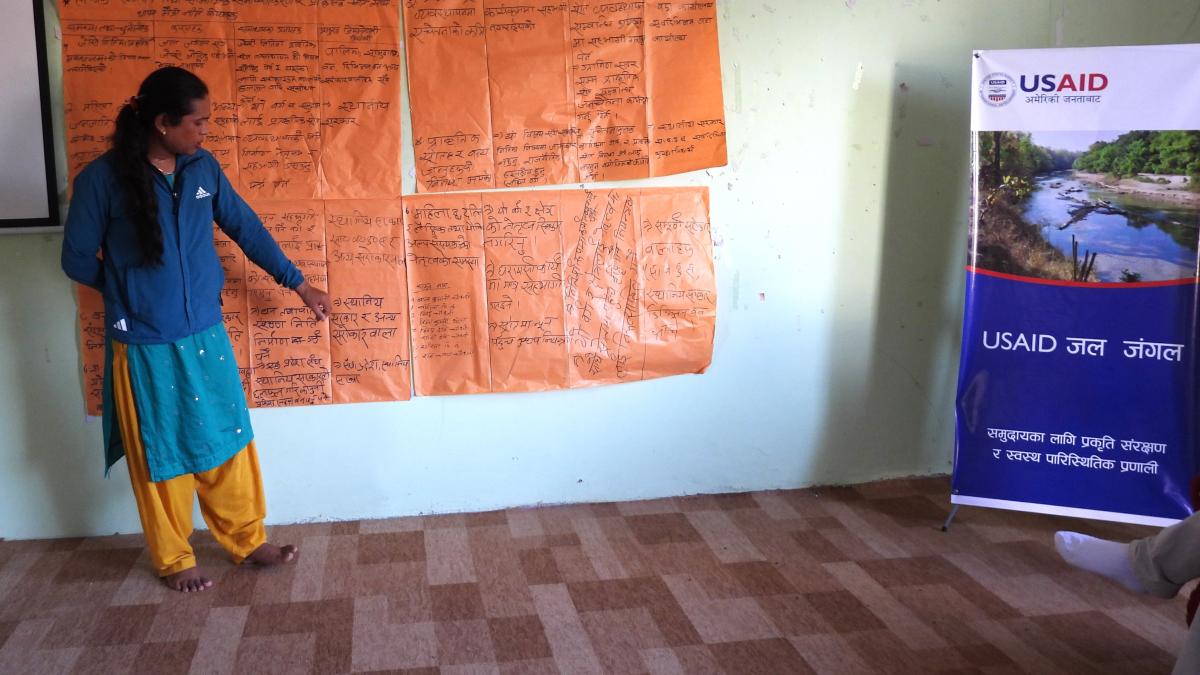USAID Biodiversity empowered marginalized and vulnerable groups to voice their experiences about natural resource management.
The United States Agency for International Development (USAID) Biodiversity (Jal Jangal) program is improving natural resource management (NRM) initiatives by uplifting marginalized and vulnerable populations.
In the Kailari Municipality of Sudurpaschim Province, the USAID Biodiversity team convenes multi-stakeholder dialogues (MSD), bringing together people from vulnerable and marginalized groups with government leaders and other stakeholders to address NRM issues, or the way societies manage the supply and access to the natural resources they rely on for their survival.
MSD sessions cover equitable access to natural resources, women’s participation in NRM decision-making, benefit sharing, climate change adaptation, alternative livelihoods, and access to information. They provide marginalized people with leadership opportunities to engage directly with decision-makers and see the positive impact of their contributions.
The Kailari Rural Municipal Chairperson, Ramsamaj Chaudhary, advocated for the Plastic-free Palika Act and the passage of the municipal Environment Protection Act, after participating in the first MSD in his municipality. Among other things, these policies prioritize Indigenous and marginalized groups' receipt of grants for nature-based enterprises such as leaf plate and paper crafts production.
“The discussions have further highlighted why policies are important for conservation and to (marginalized people),” said Chaudhary. In addition to supporting the environmental policies in his municipality, he now agrees on the importance of including marginalized groups in the NRM policy-making process.
Members of vulnerable and marginalized groups, such as women, girls, people with disabilities and Dalits, are often hardest hit by disasters. Supporting them in engaging with local leaders and stakeholders can bridge gaps, ensuring their interests are considered in policy making.
“I was very nervous but excited to lead a group discussion at the MSD,” said Mangala Sunar, an educated Dalit community member from Madhuwan Municipality who had been unable to find employment due to caste discrimination. “My team’s support helped me present our ideas clearly to a large audience and boosted my confidence.” The municipality was so impressed with her and she was offered a six-month position as a facilitator in the land commission section in the municipal office.
USAID Biodiversity (Jal Jangal) completed 27 MSD sessions in the program's priority working areas and engaged 1,407 people of diverse ages, genders, and ethnicities including, 42 percent women, 210 Dalits, 27 people with disabilities, and five people from religious minorities. This inclusivity ensures that everyone's voice is heard and valued.
USAID Biodiversity (Jal Jangal) is a five-year program designed to work with local communities, governments, and conservation practitioners to conserve nature, enhance human well-being, and safeguard Nepal’s biodiversity. The program aims to improve ecosystem health, fight environmental crime, and improve communities' ability to prepare for and adapt to impacts caused by climate change and natural disasters.
Ashmita Ojha, USAID Biodiversity (Jal Jangal), 2024
Everyone reaps the rewards when marginalized and vulnerable groups are included in discussions.




